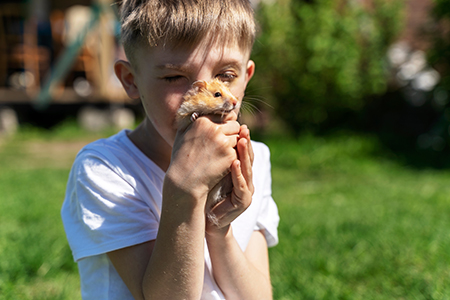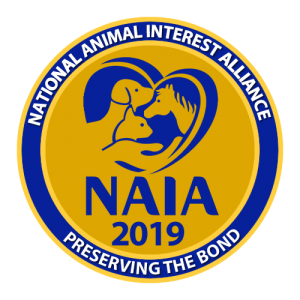 Animals and Culture, Human-Animal Bond, Pet Care
Animals and Culture, Human-Animal Bond, Pet Care  No Comments
No Comments Survey: Social Support Network Strongest Factor in Dog Longevity
In a massive survey of over 21,000 dogs by the Dog Aging Project, owners revealed numerous factors in their living environments. To the surprise of no one, several of these factors correlated with their dogs’ health and longevity.
Many responses reinforced common sense assumptions and mirror the human experience. For example, dogs living with families suffering from financial and/or housing adversity generally reported poorer health. This finding is not only predictable, but a harsh reality that many people can relate to, as well.
Some of the other findings might raise an eyebrow at first blush, but can easily be explained by related factors. For example, dogs owned by higher-income people were more likely to be diagnosed with diseases. But that doesn’t necessarily mean these dogs are less healthy. Far more likely, these dogs are simply seeing their vet more often – and being diagnosed with various illnesses – than dogs owned by lower-income folks.
Another surprising negative correlation with dog health was with the number kids in the household. More kids equated with a lower level of health. But again, the first assumption shouldn’t be that kids are necessarily harming dogs (many kids count dogs as their “best friends” and surely vice-versa), so much as recognizing that each child in a household generally equates to less time spent on a dog.
One positive correlation that did stand out – dramatically – is that money isn’t everything. While an owner’s economic status does factor into dog health, the effects of companionship and social support (like living with other dogs) were five times stronger. This makes sense, obviously; dogs are social animals with famous loyalty and love toward their families. This heartwarming correlation also serves as a reminder that socialization isn’t just something dogs enjoy, but truly need for their health.
Of course, we have to be careful not to draw too many conclusions from self-reported data, especially when it plays so strongly into our preconceived biases. But regardless, this survey is impressive in its scope, an interesting read, and it will also likely serve as a fantastic jumping off point for research into increasing our furry pals’ longevity and quality of life!
New Study Reveals Surprising Factors in Dog Longevity
Resources
★ Social determinants of health and disease in companion dogs: A cohort study from the Dog Aging Projecte
★ 7 Factors That Affect a Dog or Cat’s Lifespan











